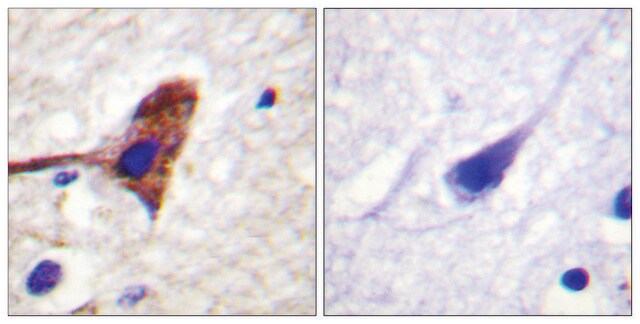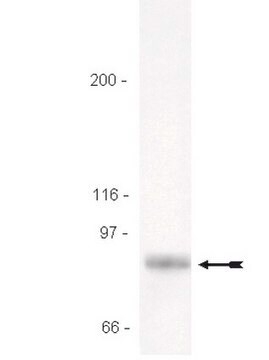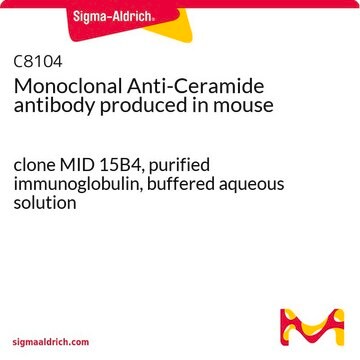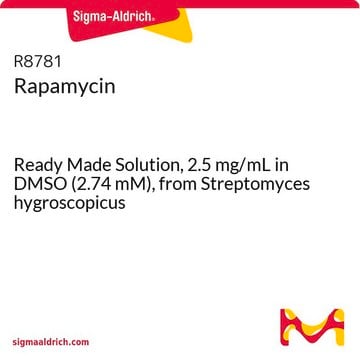T2949
Anti-mTOR antibody produced in rabbit
1.0-1.5 mg/mL, affinity isolated antibody, buffered aqueous solution
Sinónimos:
Anti-FKBP-12 rapamycin associated protein, Anti-FRAP, Anti-RAFT, Anti-SEP
About This Item
Productos recomendados
biological source
rabbit
conjugate
unconjugated
antibody form
affinity isolated antibody
antibody product type
primary antibodies
clone
polyclonal
form
buffered aqueous solution
mol wt
antigen 289 kDa
species reactivity
rat, human, mouse
concentration
1.0-1.5 mg/mL
technique(s)
immunoprecipitation (IP): 1.0-1.5 μg using 300 μg RIPA extract of human transformed kidney HEK 293T cells
microarray: suitable
western blot: 1:2,000 using whole extracts of rat brain tissue
western blot: 1:500 using mouse brain tissue
shipped in
dry ice
storage temp.
−20°C
target post-translational modification
unmodified
Gene Information
human ... FRAP1(2475)
mouse ... Frap1(56717)
rat ... Frap1(56718)
General description
Specificity
Immunogen
Application
Western Blotting (1 paper)
Physical form
Disclaimer
¿No encuentra el producto adecuado?
Pruebe nuestro Herramienta de selección de productos.
Optional
Storage Class
10 - Combustible liquids
wgk_germany
WGK 3
flash_point_f
Not applicable
flash_point_c
Not applicable
Certificados de análisis (COA)
Busque Certificados de análisis (COA) introduciendo el número de lote del producto. Los números de lote se encuentran en la etiqueta del producto después de las palabras «Lot» o «Batch»
¿Ya tiene este producto?
Encuentre la documentación para los productos que ha comprado recientemente en la Biblioteca de documentos.
Los clientes también vieron
Artículos
Cancer stem cell media, spheroid plates and cancer stem cell markers to culture and characterize CSC populations.
Cancer stem cell media, spheroid plates and cancer stem cell markers to culture and characterize CSC populations.
Cancer stem cell media, spheroid plates and cancer stem cell markers to culture and characterize CSC populations.
Cancer stem cell media, spheroid plates and cancer stem cell markers to culture and characterize CSC populations.
Nuestro equipo de científicos tiene experiencia en todas las áreas de investigación: Ciencias de la vida, Ciencia de los materiales, Síntesis química, Cromatografía, Analítica y muchas otras.
Póngase en contacto con el Servicio técnico












